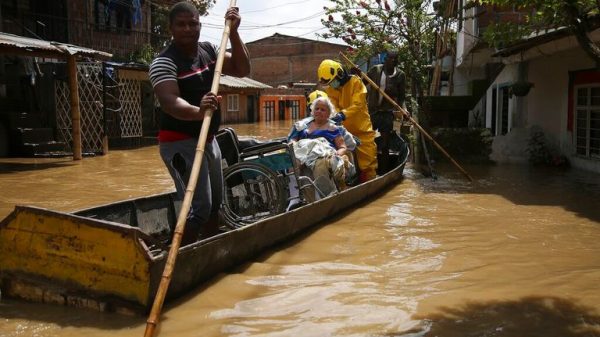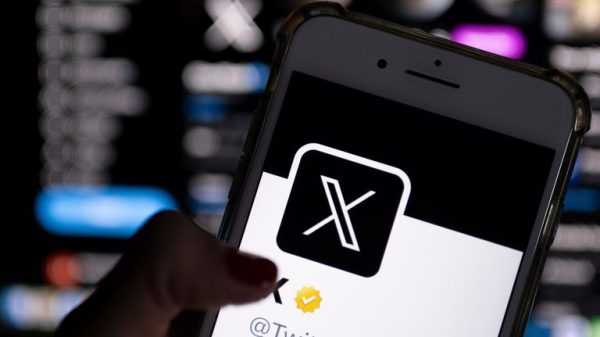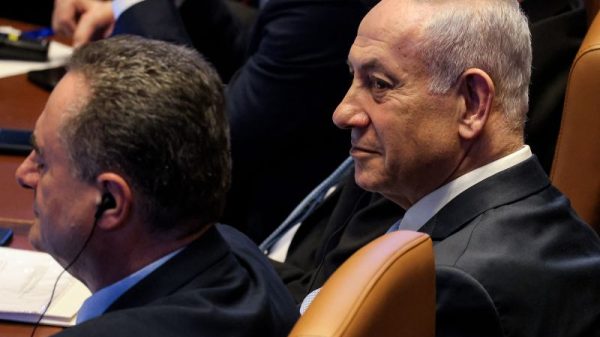“Hello,” says the news presenter, as she effortlessly switches from Spanish to English to give her audience a summary of the day’s biggest stories.
With her clear intonation, smart appearance, and friendly-yet-serious expression, she seems the very image of a news anchor. Except, perhaps, for her name.
As she introduces herself as The Girl (“La Chama”) – and her co-presenter announces himself as The Dude (“El Pana”) – the viewer gets the first hint there is more to this newscast than meets the eye. Then she adds, “Before we continue, in case you haven’t noticed, we want to tell you that we are not real.”
Welcome to “Venezuela Retweets,” an AI-anchored news show created by a group of media organizations who want to shelter their real-life journalists from a crackdown launched by strongman Nicolas Maduro’s government following July’s disputed election.
While in much of the world, journalists view the use of artificial intelligence as a looming threat to livelihoods, in Venezuela – where showing your face on a news report can conceivably land you in jail – many view it more favorably; as protection.
“Right now, being a journalist in Venezuela is a bit like being a firefighter,” explained Carlos Eduardo Huertas, a Colombian media operator who coordinated the launch of “Venezuela Retweets.”
“You still need to attend the fire even though it’s dangerous. The Girl and The Dude want to be instruments for our firefighters: we don’t want to replace journalists, but to protect them.”
After all, as The Dude chimes in reassuringly in one clip, “Although we were generated by AI, our content is real, verified, of high quality, and created by journalists.”
Brave news world
Prompting this leap into a brave new world of technology is that real-life journalists in the country have found reporting the news an increasingly dangerous business since Maduro’s controversial reelection – a result that has been hotly disputed by the opposition and caused widespread skepticism abroad.
According to Espacio Publico, a Venezuelan organization that tracks freedom of the press, at least 16 journalists have been detained in the government crackdown that followed the vote and the nationwide protests that erupted after it. All except four of them remain behind bars, some facing charges spanning from terrorism and incitement to hatred, while others are unsure even of what they are accused. Others still have seen their passports suspended.
The United Nations has talked of a “climate of fear,” while many Caracas-based journalists have taken to working in pairs, sharing their whereabouts with loved ones and memorizing their lawyers’ numbers just in case.
It was against this backdrop that the idea for “Venezuela Retweets” formed, explained “Roberto,” the managing editor of a digital publication in Caracus that is part of the collective behind it.
Among their other considerable skills as newscasters, The Girl and The Dude simply have no fear.
A unique format
Restrictions on freedom of speech in Venezuela are nothing new: Government censors have long monitored radio and television programs, threatening to take them off air if they voice anti-Maduro content, while access to paper is heavily regulated for print publications, and local internet providers blacklist the URLs of news portals non-aligned with the government, like Roberto’s.
Because of these restrictions, most Venezuelans get their news via social media, with WhatsApp chains being the considered the “most useful” information channel, according to a report published in March by Consultores21, a Caracas-based opinion pollster.
This is where the format of Venezuela Retweets comes into its own, as it is designed specifically to be shared on social media. Rather than focus on live broadcasts or written articles, its digitally created avatars simply read the news in clips that can be posted on the likes of Instagram and Facebook, or downloaded and forwarded on WhatsApp and other messaging services. (Sharing the clips on X is more problematic, as Venezuela banned the use of the app altogether when Maduro accused tech tycoon Elon Musk of being part of a neo-fascist plot to overthrow his government.)
While this makes it harder to monitor how much traffic Venezuela Retweets generates, it adds yet another layer of security because it makes the video harder to track, according to Roberto.
An artificial sense of security?
Despite the enthusiasm around the project, some remain skeptical that hiding behind an avatar will be enough to keep the long arm of Maduro’s government at bay.
“It’s nonsense to even think for a heartbeat that it’s a safety tool. It’s a clever idea, and I hope it lasts forever,” said Shelly Palmer, a professor of Advanced Media at Syracuse University who has worked extensively on artificial intelligence.
Organizations involved in freedom of the press in Cuba and Nicaragua have gotten in touch, he said, signaling a widespread interest for using AI as a freedom of expression tool in authoritarian environments.
That does not mean Roberto, Huerta and the many journalists whose work goes into the reports of The Girl and The Dude are blind to the risks. While Roberto is keen to emphasize the difference the initiative has made to newsroom morale, he acknowledges what he and his staff are up against.
“We still live in Venezuela and at the end of the day we’re at risk despite all the measures we can take,” Roberto said.
It’s a risk that cannot be underestimated. As regular listeners to The Girl and The Dude will know, the past two weeks alone saw the detention of another two reporters.



























